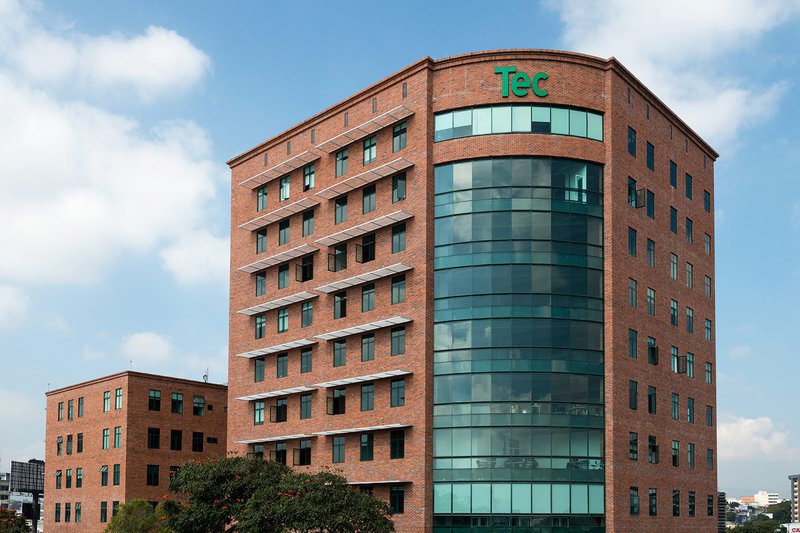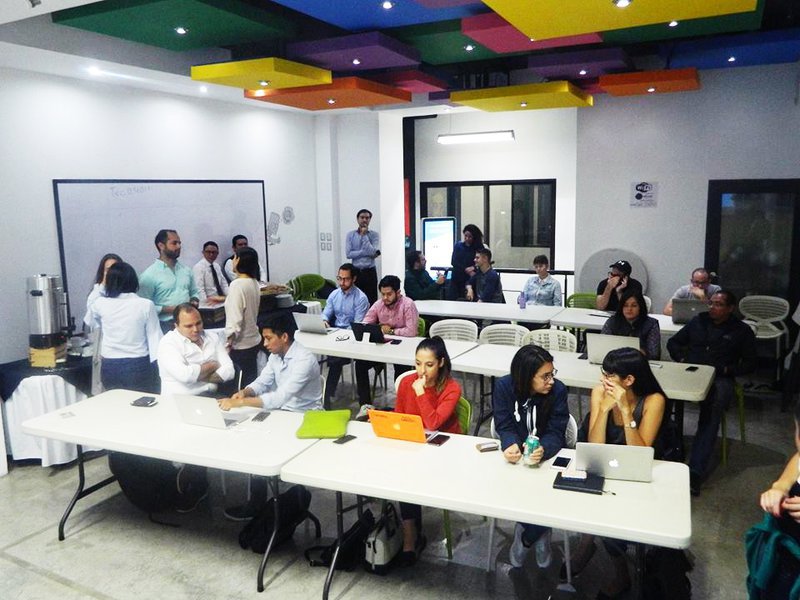
LATIN AMERICA • ECOSYSTEM ENABLER, INVESTMENT & TECHNOLOGY
Juliane Butty
JANUARY 3, 2019
The 6th edition of our Seedstars World tour in Latam ended on the 7th of November, and we could not have hoped for a better last stop than the new country added to our startup ecosystem map, Guatemala.
While Guatemala City initially may look like a territory living under the influence of the USA (the number of McDonalds or Burger King is pretty insane), there is much more to explore for those who want to. The country is home to an incredible natural diversity and 37 volcanoes that attract over 2 million tourists per year! As such, tourism presents an opportunity to foster economic growth in this Central American paradise for hikers, while digital nomad targeting hospitality brands like Selina have opened a space in Antigua that aims to invest over USD 6 millions to expand its presence in the country. With such an incredible buzz, we were curious to take our first step in Guatemala and climb its volcanoes to find out what’s behind.
Often we see a country that has been plagued by civil war and conflict between indigenous tribes and Guatemalan inhabitants. While the country is still facing such challenges as racial, gender and income inequality, malnutrition and criminality, there is a burgeoning tech industry. It’s a high time to showcase it to the world.
There is no doubt that one of the primary catalysts of the Guatemala tech scene is a well-known multiplier effect. Few people are aware of it but Guatemala is the source of some great entrepreneurs success stories. Did you know that:
These success stories can breed other successes and convince influential players to bet on tech entrepreneurship in the country.

That’s the case of Juan Mini, a local entrepreneur that did well in the the USA with an internet company for real estate brokerage called ZipRealty. Back in Guatemala, he founded Campus Tec, a group of buildings located in zone 4 of the city aimed at being a roof for tech companies and events of innovation.
One of the greatest advantages of Guatemala is its pool of talents. Guatemala has a high English speaking population, due to the fact many Guatemalan citizens migrated to the US (sadly often going back as deportees rather than per opportunity). This makes for a great place to outsource services for countries like the US as it combines qualified English speaking workers with low salaries. Out of the 16 universities in the capital, a few are known for providing high-quality education in business administration (Universidad del Valle, Universidad Francisco Marroquin) and/or technology (Universidad Galileo is recognised by MIT as one of the best tech education institutions in the world). Sadly, these universities are private, and therefore, access is unequal.
This year was the first time that we traveled to Guatemala. At the moment, we can only witness the talents rising in the region. The quality of applications we received was surprisingly high, and the top 3 winners were one of the best trios we saw this year at the regional level. It was hard to award a winner, but competitions have their rules, and so we decided on
These 3 startups managed to impress us with the quality of their founding team, the pain intensity and impact that their tech solutions can provide. Finally, their traction validated the quality of the product and execution. Overall, the quality of the deal flow we screened in Guatemala was more developed than in similar early-stage ecosystems such as Bolivia and Ecuador. We do believe that the proximity with the US as well as the influence of the success stories mentioned above has a direct correlation with these results.
The country’s ecosystem is still nascent. We count only 2 pre-accelerator programs in the whole nation – Heuristika from the University Francisco Marroquin and Multiverse, which specialise in corporate venturing. Besides the brilliant project of Tec Guatemala, the number of coworking is also very limited. The presence of an Impact Hub in Antigua and the newly opened Selina are other notable and influential entities in Guatemala.
Although there are not many ecosystem players yet, those that are there, are hungry and ready to make an impact. While ecosystem players of nascent ecosystems tend towards unhealthy competition and unconstructive tensions, the Guatemalan tech scene surprises us with its collaborative and proactive mindset. We were happy to partner with Mosto to set up the local Seedstars competition. Mosto was created less than a year ago with the vision to empower Guatemala to connect its tech ecosystem to the world and support local entrepreneurs. In May, they organised the Volcano Summit which was one of the most professional and quality networking events we have had a chance to attend in Latin America. Alterna is also doing a great job to support social entrepreneurs in the country and at a global level. They also host an annual global conference dedicated to the topic of social entrepreneurship and investment, FLII Guatemala. Tec Guatemala, Emprende Guatemala, and many others are also helping to make the ecosystem more robust and connected.

Seedstars Pitch Workshop in Tec Guatemala with the support of mentors from Claro Empresas, Mosto, Peoplefund, Invariantes fund, Heuristika & Tec Guatemala
In March, Telefonica announced the launch of their program Open Future that aims to connect entrepreneurs with digital technology solutions, investors, private and public organizations in over 16 countries through a partnership with Multiverse. Claro has also been supporting different initiatives, including our pitching competition where Samsung and Huawei also partnered with us to make the event possible. Telco companies are often the first to participate in innovation, but others are joining as well. For example, in Guatemala, Unilever has recently partnered with Alterna, an accelerator for social entrepreneurs, to support them with efficient solutions that can improve the lives of the low income population.
Finally, last September, the government approved the so called, Ley de Fortalecimiento al Emprendimiento. The objective is to strength entrepreneurship by providing a better tax environment, financial support and training for entrepreneurs. It also aims to simplify the process needed to constitute a company. For tech entrepreneurs, many are likely to continue incorporating in Delaware or Virgin Island as it remains faster, cheaper and easier for investment purpose. Nevertheless, the effort is there, Guatemala is the first country in Central America to implement an entrepreneurship law.
It’s definitely the right moment to propel the Guatemalan ecosystem to the forefront of the impact & VC investing movement. We have witnessed the talents, the hungry achiever mindset and capacity of the entrepreneurs. While one could think that the market is too small present an opportunity (14.4 millions inhabitants), it is important to remember that Guatemala is located near 2 giants – USA and Mexico.
The cost of talent in Guatemala is very attractive for the US and Canadian companies. For example, an experienced senior engineer or analyst earns on average 12,500 Quetzal to approximately 20,000 Quetzal per month (2,661 USD) and 7,250 for junior level (less than 1,000 USD). Local talents usually speak English without a strong accent and are in the same time zone as the USA which makes it easier to work together. According to Agexport, in 2017, the software exportation industry reached over USD 400 million.
But Guatemala is no longer only a technology provider. More and more entrepreneurs are willing to create their own products. As Luis from Schoolbuzz says: “Guatemala is a great market to test your product. It’s very cheap to produce an MVP, you don’t need consequent investment to test your idea”. Competition is also less intense than in markets such as Colombia or Mexico and therefore, there are still many challenges to tackle.
To help entrepreneurs scale after market validation, it will be important to provide them with the right resources. Capital access is as always a challenge for a startup founder. So far, there are only a few investment groups such as VC Invariantes - 12 investments made in local startups and the private equity Peoplefund. More important than funding though, is access to know-how and high-end network within and outside the country.
Guatemala is a small market compared to, for example, Mexico City or Sao Paulo. The first right step for any entrepreneur is to test, fail fast, iterate and expand to new markets. Multiverse and Heuristika have definitely helped early-stage startups to structure their business and get a better chance at survival, but local founders are asking for a tremplin that can help them scale outside providing them with strategic connections abroad and the methodology to hack their growth.
While there is no similar program yet, initiatives like Volcano Summit which aims to create a bridge between Guatemala and the Latin American tech scene with an international network of corporates, investors and entrepreneurs, are great tools to connect and inspire the community.

The Tec Campus has definitely played a key role in building the local community and creating a culture of hard work.
Looking ahead, it will be all about building a critical mass of investibles ventures. Many entrepreneurs and players complain about the lack of money in the game, but we think that money is there. A few key facts as proof: Guatemala has one of the highest rates of a helicopter and private jet ownership per capita in the world. Also, looking at real estate and urban development, we can conclude that there is a fair amount of wealth in the country. Paseo Cayala is a great example of that. It’s an area of 14 hectares that gathers the wealthy families of the capital. Clearly the money is there, but investors need to be educated about the existing opportunities and to become familiar with venture capital. Mostly, they need trust first.
We have witnessed that success stories like Duolingo or Kindo together with an agenda of different events have convinced more people to launch their own ventures. We expect the number of startups to grow, making it even more important to provide the right environment for development and investment. International acceleration programs can be the right tool to help. We don’t say that all entrepreneurs need it, however, it has been showed that being part of a global acceleration program can help. Ycombinator, Startup Chile and 500Startups Mexico have supported some of the most successful Latin American startups like Rappi, Platzi, Conekta, Clip, Grin, to name only a few. We have also experienced it within Seedstars. Over 85% of the startups that have gone through our growth program raised follow on capital after the acceleration. This should lead to building a better quality deal flow. Finally, it should create a more friendly investment climate to ensure capital access.
Guatemala’s ecosystem is in its early days but growing at a pace that may make the country one of the most promising tech hubs in Latin America that are fostered by a collective effort of private actors.